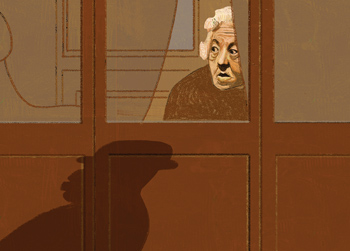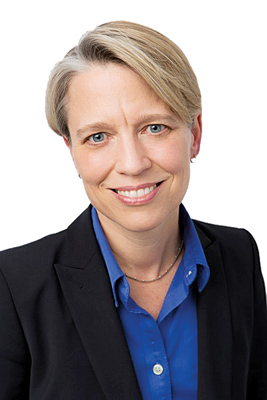By Emily Gold Boutilier
[Law] Search prosecutor Page Ulrey’s name on the Seattle Times website and you may lose some of your faith in humanity. The results include headlines such as “Defendant testifies to his love for mother who died covered in bedsores” and “Woman accused of marrying man to access his bank account charged with three felonies.”
The former article describes an 88-year-old woman “so emaciated and her bedsores so deep that deputies could see her left shoulder blade through an abscess.” The latter is about a 78-year-old man with dementia who, according to the paper, told police he did not remember having just married a 56-year-old massage therapist.

Ulrey is among the pioneers in elder abuse prosecution. In 2001 she was chosen to become the elder abuse prosecutor for the King County, Wash., prosecuting attorney’s office. It was one of the first such positions in the country, making Ulrey one of the first of a still-small number of attorneys to specialize in this area.
“She’s landed convictions where others weren’t even sure there was a crime, including difficult cases where the victims couldn’t remember what happened or had died,” according to an article in the alumni magazine of Northeastern University School of Law, where Ulrey received her J.D.
Many of Ulrey’s cases involve financial exploitation. In one recent example, she says, an elderly man with early dementia befriended a woman whose husband had expressed interest in buying his late wife’s car. “Over a six-month period he gave her over $200,000” to invest in a catering business, Ulrey says. The business did not exist. “When he figured out how betrayed he’d been, he was just devastated.” Thanks to Ulrey’s efforts, the woman and her husband—who’d already served time for similar scams—are back behind bars.
“I came to prosecution because of my desire to advocate for victims,” says Ulrey, who views the elderly as among the least-advocated-for populations of all. There is no national organization for the prosecution of elder abuse, she points out, and unlike well-publicized campaigns to combat child abuse and domestic violence, efforts against elder abuse receive little national attention or funding. “There’s a long history,” she says, “of us ignoring the issue.”
Elder abuse cases are among the most difficult to prosecute, Ulrey says: Victims often cannot testify, either because they have dementia or because they’ve died. Also, a single case may involve multiple crimes—neglect, physical assault, financial exploitation, sexual abuse—each of which carries a unique set of prosecution needs.

Ulrey says she became a lawyer to advocate for the underdog, and before she was a prosecutor, she was a public defender, most recently for juveniles. She made the difficult decision to leave public defense when she was about to be transferred to the adult felony division: “I felt that my allegiance was going to tend to be more to victims than defendants.”
In addition to her courtroom work, Ulrey now trains police officers, detectives and prosecutors, among others. This provides a respite from the bleakness of her cases. “The suffering is just immense,” she says of the victims. “It’s really painful. It’s also very motivating.”
Boutilier is the editor of Amherst magazine.
Illustration © Beppe Giacobbe c/o theispot.com